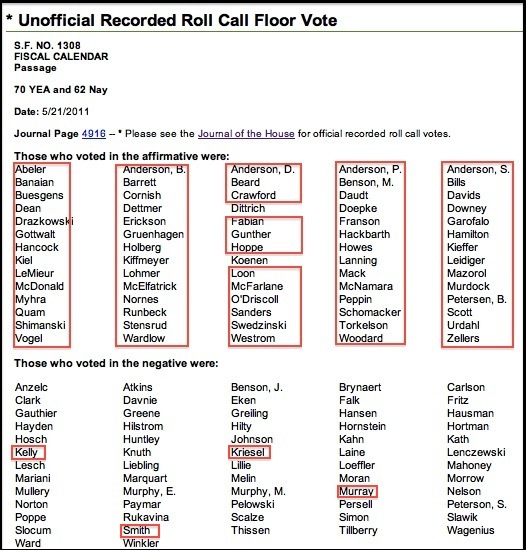I have a problem with the majority voting on the universal human rights and fundamental freedoms of the minority. It doesn’t matter which groups we are discussing when we say the “majority” and “minority”; what we have are two sets of people – human beings – that are different in some way.
Legislation can be introduced to help define and clarify, to put in black and white, what we hold to be universal human rights, but even without these laws in place, they are called universal human rights because we know that these are so basic, so beyond reproach or question that laws are almost superfluous. Almost. The majority can become blind to the minority. This can lead to a belief that the differences that define the the minority are somehow a threat to that which defines the majority, or that the differences of the minority are undesirable because they’re not shared by most people. And so laws can act as a safeguard for the rights of the minority for cases in which their voices cannot be heard over the crowd.
I think it is horrific that we allow any human being to have their rights curtailed by the whimsy of popular opinion. That is one of the reasons I am angry about this November’s ballot initiative in Minnesota, which leaves it up to us, the voters, to amend the Minnesota Constitution to define marriage as a union between one man and one woman. Other reasons that I’m angry about the proposal include the traditional objections to polluting our constitution with language that would bar citizens from their rights, because I support human happiness and this amendment would hurt gay human beings, and because I detest the political drama and fear-mongering that is caused by this American Idol-esque “let the people have a say” and “down with activist judges” posturing.
So why are we voting on whether Bob and Steve should be allowed to get married? Well, because bigoted, sex-obsessed, fearful, religious zealot nutjobs…oh, we’ll skip that for now. Let’s just go with this:
Some people (see past sentence) want to amend the constitution to “protect” heterosexual marriage from gay people, and they think the best way to do this is to amend the constitution. Per Article IX of the MN Constitution we, the voters, must approve any changes to the constitution. That’s why we’re voting on Bob and Steve’s rights this November.
But why do the bigoted, sex-obsessed, oops some people want to amend the constitution? Why is the law in the Minnesota Statutes not enough? Judges refer to the Constitution to make decisions and rulings. Right now, judges in Minnesota can point to the constitution and say that nowhere in our Constitution does it explicitly ban the marriage of gay people. This amendment would put language in place that would explicitly ban the marriage of gay people. Several states have already used the lack of this language in their constitutions to overturn statutes that ban gay marriage, thus making gay marriage legal in those states. Some people in Minnesota are trying to prevent that from happening in this state.
This is marriage law that we’re discussing, not theology. Churches can be as restrictive as they want about marriage within the confines of their religion, but every resident of Minnesota should have the right to be treated as equal to every other resident of Minnesota under Minnesota law.
So no, I don’t want to vote on the proposed amendment that would make it very difficult for gay residents to marry in Minnesota. And I don’t want you to be able to either.
But if it is there when I step into the voting booth in Novemeber, I will be voting NO, the Minnesota Constitution SHALL NOT be amended to provide that only a union of one man and one woman shall be valid or recognized as a marriage in Minnesota.
….
And in light all of that, this is a heartening development from Friday:
From The Colu.mn:
Legislators Propose Repeal of Anti-Gay Marriage Amendment
DFL legislators in the Minnesota House introduced a bill during the legislative recess on Friday to repeal a constitutional amendment to ban same-sex marriage from the 2012 ballot. The bill faces high hurdles as the Republicans still control the House.
Here’s text of the bill:
H.F. No. 1885, as introduced – 87th Legislative Session (2011-2012) Posted on Jan 13, 2012
A bill for an act relating to marriage; repealing a proposed amendment to the Minnesota Constitution recognizing marriage as only a union between one man and one woman;repealing Laws 2011, chapter 88.
BE IT ENACTED BY THE LEGISLATURE OF THE STATE OF MINNESOTA:Section 1. REPEALER.Laws 2011, chapter 88, is repealed.
Sec. 2. EFFECTIVE DATE.
Section 1 is effective the day following final enactment.The bill was submitted by Karen Clark of Minneapolis, Leon Lillie of North St. Paul, Kate Knuth of New Brighton, Rena Moran of St. Paul ; Marion Greene of Minneapolis, John Lesch of St. Paul, Mindy Greiling of Roseville, Carolyn Laine of Columbia Heights, Ryan Winkler of Golden Valley, Alice Hausman of St. Paul, Linda Slocum of Minneapolis, Joe Mullery of Minneapolis, Phyllis Kahn of Minneapolis, Dianne Loeffler of Minneapolis, Frank Hornstein of Minneapolis, Bill Hilty of Finlayson and Kathy Brynaert of Mankato
Props for the effort, but as the article points out, this is likely not going to get anywhere since the Republicans control the House, and the seated Republicans are fairly united in their support of the amendment:
Those in red boxes are Republican legislators. Source





